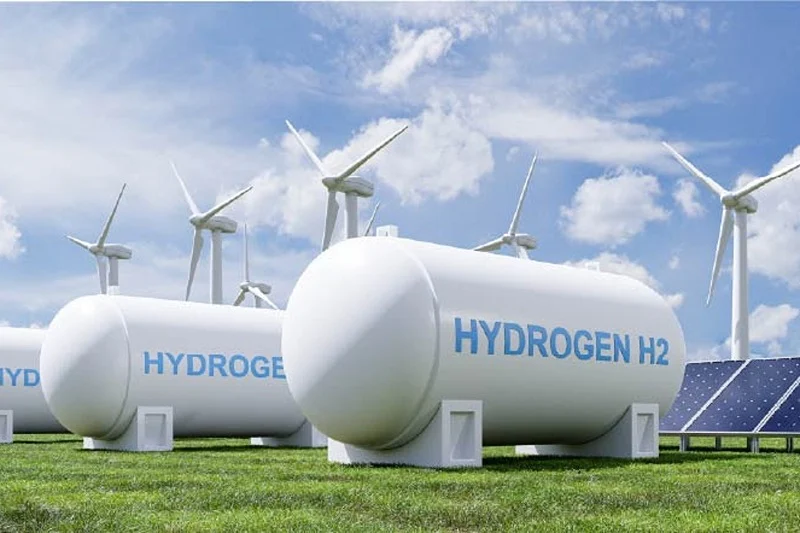KfW, the German development bank, is strengthening its commitment to ecological transition in the Middle East and North Africa. It has just signed a strategic agreement with the European Commission and DEG, the German investment company, to mobilize a financial guarantee of 300 million euros. The goal is to support green initiatives in urban areas and accelerate the development of the green hydrogen market in the countries of the region, including Morocco.
This funding is provided by the European Fund for Sustainable Development Plus (EFSD+), the EU’s financial arm for its international partnerships. It aims to encourage projects related to energy efficiency, the growth of renewable energies, and the resilience of urban infrastructures. The support also covers activities related to the production, storage, and distribution of green hydrogen, an energy considered strategic for a low-carbon future.
In this context, Morocco stands out as one of the main beneficiaries. The country hosts one of the most advanced pilot projects in this field: the “Power to X” platform currently being developed in the Guelmim-Oued Noun region. This site is expected to start production in 2026 and deliver up to 10,000 tons of green hydrogen per year. Powered by a 200 MW hybrid solar-wind plant, the installation will also be connected to a seawater desalination unit planned in Tan-Tan. The entire project benefits from financial support from KfW, potentially amounting to 300 million euros.
For KfW, this initiative fully aligns with the environmental priorities of the European Union, particularly through the Green Deal for Europe and the “Global Gateway” strategy, which aims to provide a sustainable alternative for partner countries in their infrastructure choices. “This agreement embodies our shared commitment to building a sustainable energy future for the region,” said Christiane Laibach, a member of KfW’s board. According to her, green hydrogen will become a pillar of the new energy landscape in the MENA region.
The European Commission shares this sentiment. Stefano Sannino, Director-General for relations with the Middle East and North Africa, emphasizes that this partnership “represents an ambitious response to major challenges faced by cities in the region.” He stresses the dual expected impact: combating climate change while generating growth and local employment through green investments.
Launched in 2021, the EFSD+ fund aims to stimulate sustainable public and private investments in the EU’s partner countries, with a total guarantee capacity of nearly 40 billion euros over the period 2021-2027. In Morocco, KfW is already heavily involved, particularly in financing the green transition program of the OCP group, to which it contributes 200 million euros. It is also participating in other structuring projects, such as the Noor solar complex in Ouarzazate and the national hydrogen program led by Masen.
This momentum confirms the central role of the Kingdom in the regional energy transition and its strategic positioning as a hub for green hydrogen for the decades to come.


